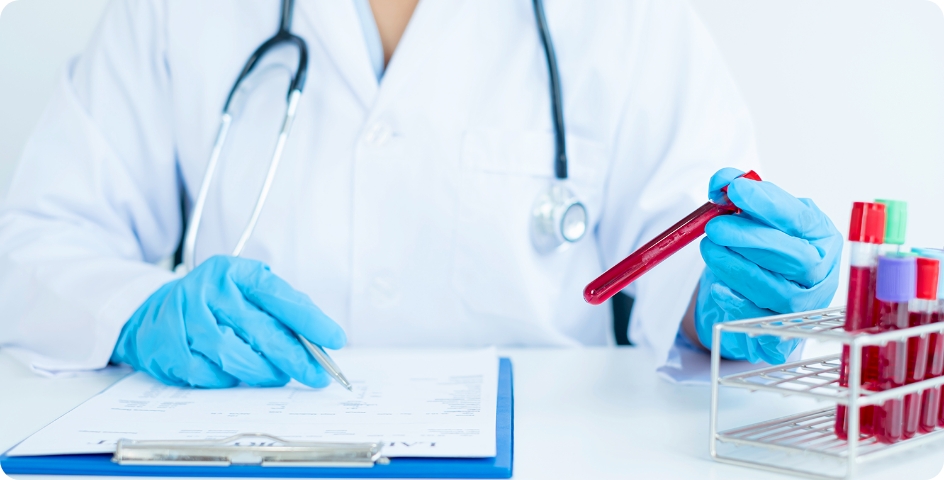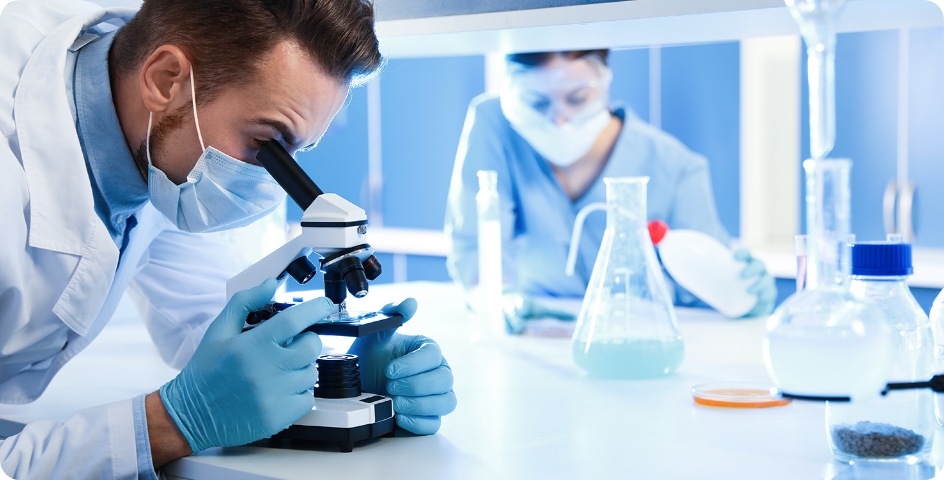Hematology Treatment in Turkey
Healthy Türkiye helps you find the best hematology treatment in Turkey at affordable prices and adopts a 360-degree service approach in all areas of health through affiliated hospitals.
- Homepage
- Medical Treatment
- Hematology Treatment in Turkey
About Hematology Treatment in Türkiye
The science or study of blood and blood illnesses is known as hematology. Hematology treatment in Turkey is the medical area that treats blood disorders and cancers, such as hemophilia, blood clots, leukemia , lymphoma, myeloma, and sickle cell anemia. Hematology is an internal medicine specialty that focuses on the physiology, pathophysiology, etiology, diagnosis, treatment, prognosis, and prevention of blood-related illnesses.
Hematologists are mostly concerned with lymphatic systems and bone marrow , and they may diagnose blood counts or platelet anomalies. Hematologists care for organs that get blood cell nourishment, such as the lymph nodes, spleen, thymus, and lymphoid tissue.
Blood is made up of various components, including red blood cells, white blood cells, platelets (which account for around 45% of the volume), and plasma (55% of the volume). Red blood cells (RBCs or erythrocytes), which account for around 45% of total blood volume, transport oxygen from the lungs to the body’s tissues. They also transport carbon dioxide back to the lungs for exhalation. They have a disc form and are made in the bone marrow.
White blood cells (also known as WBCs or leukocytes), which are produced in the bone marrow, aid in the fight against infection. They account for less than 1% of total blood volume when combined with platelets. Platelets (also known as thrombocytes) are colorless, tiny fragments that cling together and interact with clotting proteins to halt or prevent bleeding. They are also generated in the bone marrow. Plasma is the yellowish fluid component of blood. It is 92% water, with 7% essential proteins and 1% mineral salts, carbohydrates, lipids, hormones , and vitamins.
Hematology has four key areas of study: hemoglobinopathy, hematologic malignancies, anemia, and coagulopathy. The study of abnormalities in the globin chains of hemoglobin molecules is known as hemoglobinopathy. Hemoglobinopathy also includes thalassemia (also known as erythropoiesis) and sickle cell anemia.
Oncology and hematology: Although hematologists collaborate with experts from a variety of medical and surgical specialties, hematology is most typically associated with oncology. Hematologists and oncologists collaborate to treat adults and children with blood and bone marrow malignancies such as leukemia and lymphoma.
The complete blood count, or CBC, is one of the most used hematological tests. This test is frequently performed as part of a normal examination and can reveal anemia, clotting issues, blood malignancies, immune system diseases, and infections.

Hematology Treatment Procedure in Turkey
Hematology is the study of blood, blood-forming organs such as bone marrow, as well as blood-related ailments and diseases. The term “heme” is derived from the Greek word for blood. Hematological tests are used to detect and diagnose disorders like hemophilia, anemia, leukemia, sickle cell anemia, lymphomas, and a variety of infections.
Malignant and nonmalignant blood disorders are the two types of hematological disorders. Nonmalignant blood disorders include hemoglobinopathies such as thalassemia and sickle-cell anemia, other forms of anemia, and coagulopathies such as hemophilia. Hemoglobinopathies are genetic disorders and, apart from α- and β-thalassemia, include diseases caused by defective hemoglobin structure, presenting in mild to severe anemia and multi-organ dysfunction. Hemophilia and Von Willebrand disease are two clotting disorders with genetic origins that are caused by low levels of clotting components in the blood.
Nonmalignant illnesses such as anemia and pulmonary embolism may be caused by a variety of factors, including nutrition and lifestyle. Idiopathic thrombocytopenic purpura is a hematological illness that causes bruising, nosebleeds, bleeding gums, and internal bleeding because platelets are engaged in clotting. The cause of idiopathic thrombocytopenic purpura is unknown, as it is not inherited or communicable. Idiopathic thrombocytopenic purpura most commonly arises in youngsters after a viral infection such as chicken pox.
Leukemia, lymphomas, and myelomas are examples of malignant blood illnesses that can affect people of all ages. Genetics, lifestyle, and environment are all potential causes of malignant hematological diseases. Polycythemia vera is a type of leukemia known as a myeloproliferative neoplasm that is characterized by an overabundance of red blood cells in the bone marrow, causing blood to become sticky and increasing the risk of clots and heart attack. Myelofibrosis is another myeloproliferative leukemia in which the bone marrow creates an excess of stem cells, causing inflammation and scar tissue formation. Malignant lymphomas, such as Hodgkin’s lymphoma, cause aberrant cells in the lymphatic system.
Myelodysplastic syndromes are a type of cancer in which bone marrow blood stem cells fail to grow and produce distinct types of adult blood cells. Refractory anemia, refractory cytopenia, chronic myelomonocytic leukemia, and a variety of other cancers result from a shortage of red and white blood cells in the blood. Multiple myeloma is a malignancy that generates an excess of plasma cells in the blood. Anemia, thrombocytopenia, and leukopenia are caused by an excess of plasma cells in the blood, resulting in a deficiency of red blood cells, platelets, and white blood cells. Multiple myeloma can also damage the osteoblasts and osteoclasts that keep bones healthy, causing bone degeneration and fractures.

How Is Hematology Treatment Performed in Turkey?
The study of blood and blood problems is known as hematology treatment in Turkey. Hematologists and hematopathologists are highly trained healthcare professionals that specialize in blood and blood component illnesses. Blood and bone marrow cells are examples of this. Anemia, infection, hemophilia, blood-clotting problems, and leukemia can all be diagnosed with hematological tests. Hematologists are specialists who specialize in the diagnosis and treatment of blood and its associated structures, such as bone marrow. A hematologist may perform the following tests and procedures:
Total blood cell count: This test can assist in the diagnosis of anemia, inflammatory disorders, and blood cancer. It can also help with blood loss and infection monitoring.
Platelet count: This test aids in the diagnosis and monitoring of bleeding problems.
When something goes wrong with your blood, it can have an impact on your whole health. That is why it is critical that you are aware of some of the common blood problems that may impact you. Many different forms of blood disorders and blood malignancies can harm people. Anemia, bleeding diseases such as hemophilia, blood clots, and blood malignancies such as leukemia, lymphoma, and myeloma are all common blood illnesses. If you suspect you have a blood disorder, the first step is to consult with your doctor. Your doctor may recommend that you see a hematologist if you are diagnosed with a blood condition.

We Care About Your Health
Healthy Türkiye provides the best for your health and comfort. You will feel privileged with us.
7/24 Quality Personal Assistance Throughout Your Journey
Customizable for You All-Inclusive Packages
Get the Right Advice for your Health
Types of Hematology Treatment in Turkey
Hematology is the study of blood, blood-forming tissues and organs, blood-related illnesses, their prevention, etiology (cause), diagnosis, and therapy. It includes diseases or pathological medical problems involving RBCs, WBCs, platelets, bone marrow, lymph nodes, spleen , blood arteries, and proteins involved in bleeding and coagulation. A hematologist is a doctor who treats blood problems.
Anemia, sickle cell disease, Thalassemia, Hemophilia, Lymphoma, Leukemia, Myeloma, Immune Thrombocytopenic purpura, and hemochromatosis are examples of common blood disorders. In hematology, this form of fellowship teaches healthcare workers to treat adult blood problems, bone marrow illness, and lymphatic system diseases. Pediatric hematology: As the name suggests, this specialty trains clinicians to treat children with blood illnesses. Depending on your specific condition, treatment may include:
Growth factors that encourage the formation of blood cells Steroids or other immunosuppressive medications.
Chemotherapy is used to kill aberrant cells.
Transfusions of healthy blood cells to assist you gene therapy can be used to replace or deactivate disease-causing genes or to introduce disease-fighting genes.
Immunotherapy is a treatment that uses your own immune system to combat disease.
Blood problems are treated differently depending on the nature and severity of the condition. Certain illnesses are incurable, but medication can help you manage them and live a better life. Treatment also helps to alleviate symptoms and improve overall health.
Iron supplementation: Iron supplements may be prescribed by specialists in a variety of illnesses. In the event of considerable blood loss, iron supplements help to replenish the quantity of iron in our bodies and blood. Iron deficiency, often known as anemia, is caused by low iron content. Anemia causes fatigue, weakness, and dizziness. When symptoms of severe anemia do not improve with iron supplements, a blood transfusion may be required.
Drugs: In the event of platelet abnormalities, some medications can stimulate the bone marrow to create more platelets. Antibiotics are prescribed to treat white blood cell disorders and to aid in the fight against infections. Anemia, which is usually caused by deficiencies, is treated with dietary supplements.
Blood transfusion: This treatment is used to replace lost blood with blood received from a donor. To avoid difficulties, a donor must match the patient’s blood type when donating blood.
Surgical treatment may include a bone marrow transplant to restore or replace the damaged bone marrow. This treatment involves the removal of stem cells from a donor and their replacement in the patient’s body, resulting in the generation of normal blood cells. Blood transfusions are also used to replenish blood cells that have been lost or damaged.
What to Expect: Hematology Treatment
Before beginning therapy, you will meet with your doctor, or a hematologist, to go through your medical history. You will be examined physically during this consultation. You will also be asked to detail your present symptoms and general health to the hematologist. Blood tests will be ordered, and once the findings are examined, the hematologist will be able to begin diagnosing your specific blood problem or disease.
If a treatment plan is necessary, your doctor will work with you to establish a specific strategy that may include injections, intravenous solutions, or blood transfusions. If blood transfusions are part of your treatment plan, you will be required to sign a consent form. The doctor will go over all of the dangers and advantages with you. The consent form certifies that you have been given information about blood transfusions, including the process to be used, the benefits of transfusions, and any potential hazards.
We will need to match your blood to the product if you are receiving blood or blood products (platelets). This is known as “Type and Screen.” A lab professional will extract a blood sample to determine your blood type (A, B, AB, or O), and the blood bank will test your sample to ensure that the blood type utilized matches your blood type.
This may take some time, but it is critical to ensure that you get the proper blood to avoid a reaction. We may also offer you drugs to assist you to avoid reactions. Transfusions normally take one to six hours. The length of time depends on how much blood you require and your overall health. Your nurse will walk you through the procedures, monitor you, and answer any questions you may have.
Hematology Referral
Many people who are referred to these clinics are concerned that they have cancer. This is true for some patients, but the vast majority of those referred to the general clinic do not have cancer. All patients treated in the clinic will be discussed with a consultant, and the majority will see one on their initial appointment.
Additional investigations are frequently required to aid in the diagnosis. Additional blood tests may be required, and some individuals may additionally require X-rays, scans, and/or a bone marrow test. If these tests are ordered, the patient will be notified of the results. Many patients can then be dismissed from the Haematology Department, but some will require more investigation and treatment in a clinic dedicated to the type of sickness diagnosed.

2026 Cost of Hematology Treatment in Turkey
All types of medical attention, like hematology treatment, are very affordable in Turkey. Many factors are also included in determining the cost of hematology treatment in Turkey. Your process with Healthy Türkiye will last from the time you decide to have a hematology treatment in Turkey until the time you are fully recovered, even if you are back home. The exact hematology treatment procedure cost in Turkey depends on the type of operation involved.
The cost of hematology treatment in Turkey does not demonstrate many variations in 2026. Compared to costs in developed countries like the United States or the UK, hematology treatment costs in Turkey are relatively low. So, it’s no wonder patients from across the world visit Turkey for hematology treatment procedures. However, price is not the only factor affecting choices. We suggest looking for hospitals that are safe and have hematology treatment reviews on Google. When people decide to seek medical help for hematology treatment, they will not only have low-cost procedures in Turkey, but also the safest and best treatment.
At clinics or hospitals contracted with Healthy Türkiye, patients will receive the best hematology treatment from specialist doctors in Turkey at affordable rates. Healthy Türkiye teams to provide medical attention, hematology treatment procedures, and high-quality treatment to patients at a minimum cost. When you contact Healthy Türkiye assistants, you can get free information about the cost of hematology treatment in Turkey and what this cost covers.
The cost of hematology treatment in the UK is between £5,000 to £20,000.
The cost of hematology treatment in the USA is between $10,000 to $50,000.
The cost of hematology treatment in Turkey is between $1,000 to $10,000.
Price of Hematology Treatment in the UK?
Price of Hematology Treatment in the USA?
Price of Hematology Treatment in Turkey?
Why Is Hematology Treatment Cheaper in Turkey?
One of the main considerations before traveling abroad for hematology treatment is the cost-effectiveness of the whole process. Many patients think that when they add flight tickets and hotel expenses to their hematology treatment costs, it will become very expensive to travel, which is not true. Contrary to popular belief, round-trip flight tickets to Turkey for hematology treatment can be booked very affordably. In this case, assuming you are staying in Turkey for your hematology treatment, your total travel expense of flight tickets and accommodation will only cost less than any other developed country, which is nothing compared to the amount that you are saving.
The question “Why is hematology treatment cheaper in Turkey?” is so common among patients or people simply curious about getting their medical treatment in Turkey. When it comes to hematology treatment prices in Turkey, there are 3 factors that allow for cheaper prices: The question “Why is hematology treatment cheaper in Turkey?” is so common among patients or people simply curious about getting their medical treatment in Turkey. When it comes to hematology treatment prices in Turkey, there are 3 factors that allow for cheaper prices:
The currency exchange is favorable for whoever looking for hematology treatment has a euro, dollar, or pound.
The lower cost of living and cheaper overall medical expenses such as hematology treatment.
For hematology treatment, incentives are given by the Turkish Government to medical clinics working with international clients.
All these factors allow for cheaper hematology treatment prices, but let’s be clear, these prices are cheaper for people with strong currencies (as we said, the euro, dollar, Canadian dollar, pound, etc) Every year, thousands of patients from all over the world come to Turkey to get hematology treatment. The success of the healthcare system has increased in recent years, especially in hematology treatment. It’s easy to find well-educated and English-speaking medical professionals in Turkey for all kinds of medical treatment such as hematology treatment.

Why Choose Turkey for Hematology Treatment?
Turkey is a common choice among international patients seeking advanced hematology treatment. Turkey’s health procedures are safe and effective, with a high success rate, like hematology treatment. The increasing demand for high-quality hematology treatment at affordable prices has made Turkey a popular medical travel destination. In Turkey, hematology treatment is performed by highly experienced and trained doctors with the most advanced technology in the world. Hematology treatment is done in Istanbul, Ankara, Antalya, and other major cities. The reasons for choosing hematology treatment in Turkey are as follows:
High-quality hospitals: Joint Commission International (JCI) accredited hospitals have dedicated hematology treatment units that are specially designed for patients. International and national strict protocols provide effective and successful hematology treatment for patients in Turkey.
Qualified experts: The expert teams include nurses and specialist doctors, together to carry out hematology treatment according to the patient’s needs. All the included doctors are highly experienced in performing hematology treatments.
Affordable price: The cost of hematology treatment in Turkey is affordable compared to Europe, the USA, the UK, Singapore, Australia, etc.
The high success rate: Highly experienced specialists, the best available technology, and stringently followed safety guidelines for post-operative care of the patient, resulting in a high success rate for hematology treatment in Turkey.
Is Hematology Treatment Safe in Turkey?
Did you know Turkey is one of the most visited destinations for hematology treatment in the world? It is ranked as one of the most popular tourist destinations for hematology treatment. Over the years, it has also come to be a very popular medical tourism destination, with many tourists coming in for hematology treatment. There are so many reasons why Turkey stands out as a leading destination for hematology treatment. Because Turkey is both safe and easy to travel to, with a regional airport hub and flight connections to pretty much everywhere, it is preferred for hematology treatment.
The best hospitals in Turkey have experienced medical staff and specialists who have performed thousands of medical services such as hematology treatment. All procedures and coordination related to hematology treatment are controlled by the Ministry of Health in accordance with the law. Over many years, the greatest progress in medicine has been observed in the field of hematology treatment. Turkey is known among foreign patients for its great opportunities in the area of hematology treatment.
To emphasize, besides the price itself, the key factors in selecting a destination for hematology treatment is certainly the standard of medical services, the hospital staff’s high level of expertise, hospitality, and the safety of the country.
All-Inclusive Packages for Hematology Treatment in Turkey
Healthy Türkiye offers all-inclusive packages for hematology treatment in Turkey at much lower prices. Extremely professional and experienced doctors and technicians carry out high-quality hematology treatment. The cost of hematology treatment in European countries can be quite expensive, especially in the UK. Healthy Türkiye provides cheap all-inclusive packages for a long and short stay of hematology treatment in Turkey. Because of many factors, we can provide you with many opportunities for your hematology treatment in Turkey.
The price of hematology treatment differs from other countries due to medical fees, staff labor prices, exchange rates, and market competition. You can save much more in hematology treatment compared to other countries in Turkey. When you purchase an all-inclusive package with Healthy Türkiye, our healthcare team will present a list of hotels for you to choose from. In hematology treatment travel, the price of your stay will be included in the all-inclusive package cost.
When you purchase hematology treatment all-inclusive packages through Healthy Türkiye, you will always receive VIP transfers. These are provided by Healthy Türkiye, which has contracted with highly qualified hospitals for hematology treatment in Turkey. Healthy Türkiye teams will organize everything about hematology treatment for you and have you picked up from the airport and safely brought to your accommodation. Once settled in the hotel, you will be transferred to and from the clinic or hospital for hematology treatment. After your hematology treatment has been successfully completed, the transfer team will return you to the airport in time for your flight home. In Turkey, all packages of hematology treatment can be arranged upon request, which relaxes the minds of our patients.
The Best Hospitals in Turkey for Hematology Treatment
The best hospitals in Turkey for hematology treatment are Healthy Türkiye, Memorial Hospital, Acıbadem International Hospital, and Medicalpark Hospital. These hospitals attract patients from all over the world seeking hematology treatment due to their affordable prices and high success rates.
Best Doctors and Surgeons in Turkey for Hematology Treatment
The best doctors and surgeons in Turkey for hematology treatment are highly skilled professionals who offer specialized care and advanced procedures. With their expertise and state-of-the-art techniques, these specialists ensure that patients receive high-quality hematology treatment and achieve optimal health results.

Frequently Asked Questions
While there are specific therapies for hematological illnesses, chemotherapy, radiation therapy, or surgery may also be used to treat blood malignancies.
A high hemoglobin count arises most typically when your body requires more oxygen-carrying capability, which is usually due to smoking. Because you live at a high elevation, your red blood cell production naturally increases to compensate for the lower oxygen supply.
Seeing a hematologist does not imply that you have cancer. Hematologists are doctors who specialize in the treatment of blood illnesses. If your healthcare provider suggests that you see a hematologist because your blood tests show an abnormal blood cell count or coagulation levels, you may do so.
Medication is also used to treat high hemoglobin levels in order to reduce the number of red blood cells, which can diminish the consequences and complications of the illness.
Hematology is the medical discipline that deals with the diagnosis and treatment of both benign and malignant disorders of the red and white blood cells, platelets, and coagulation system in adults and children. On hospital wards and in outpatient clinics, haematologists provide direct care to patients.
